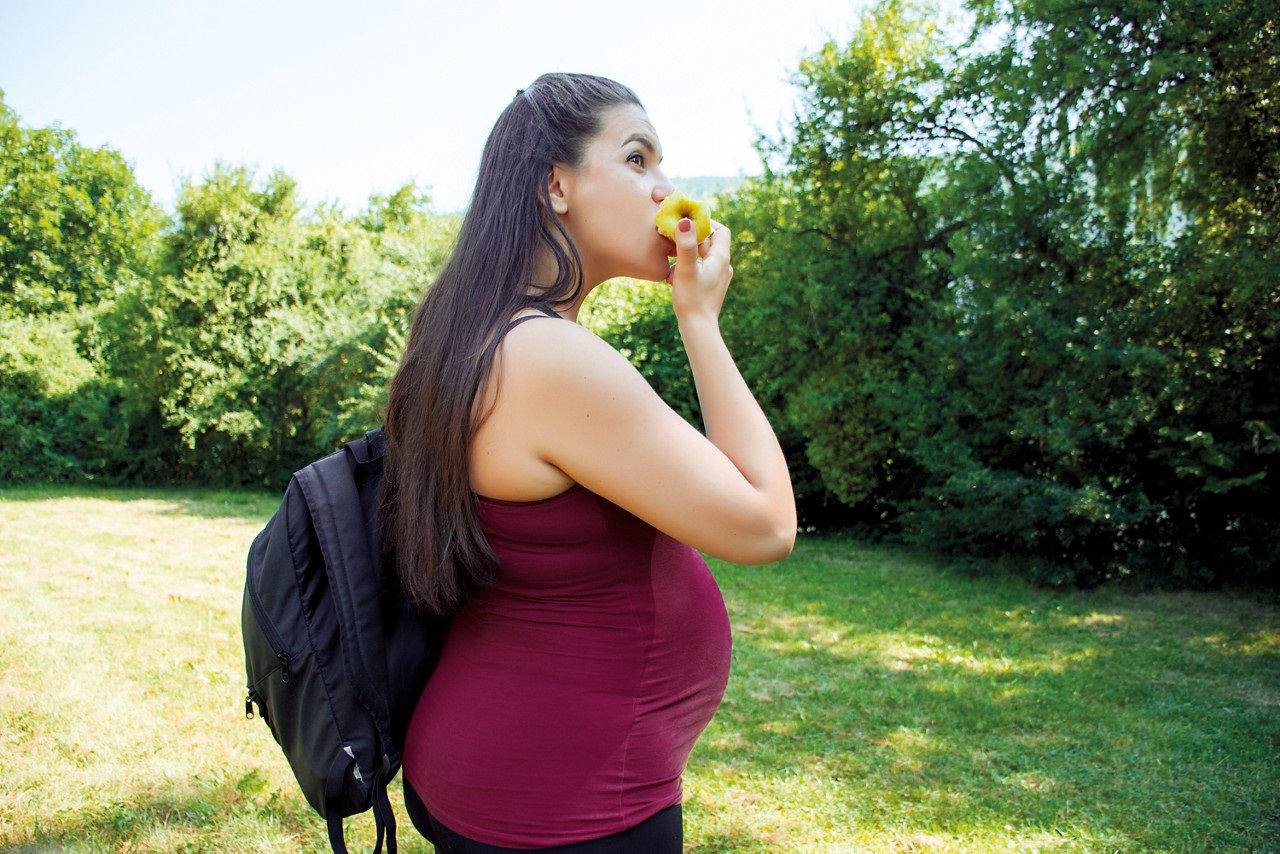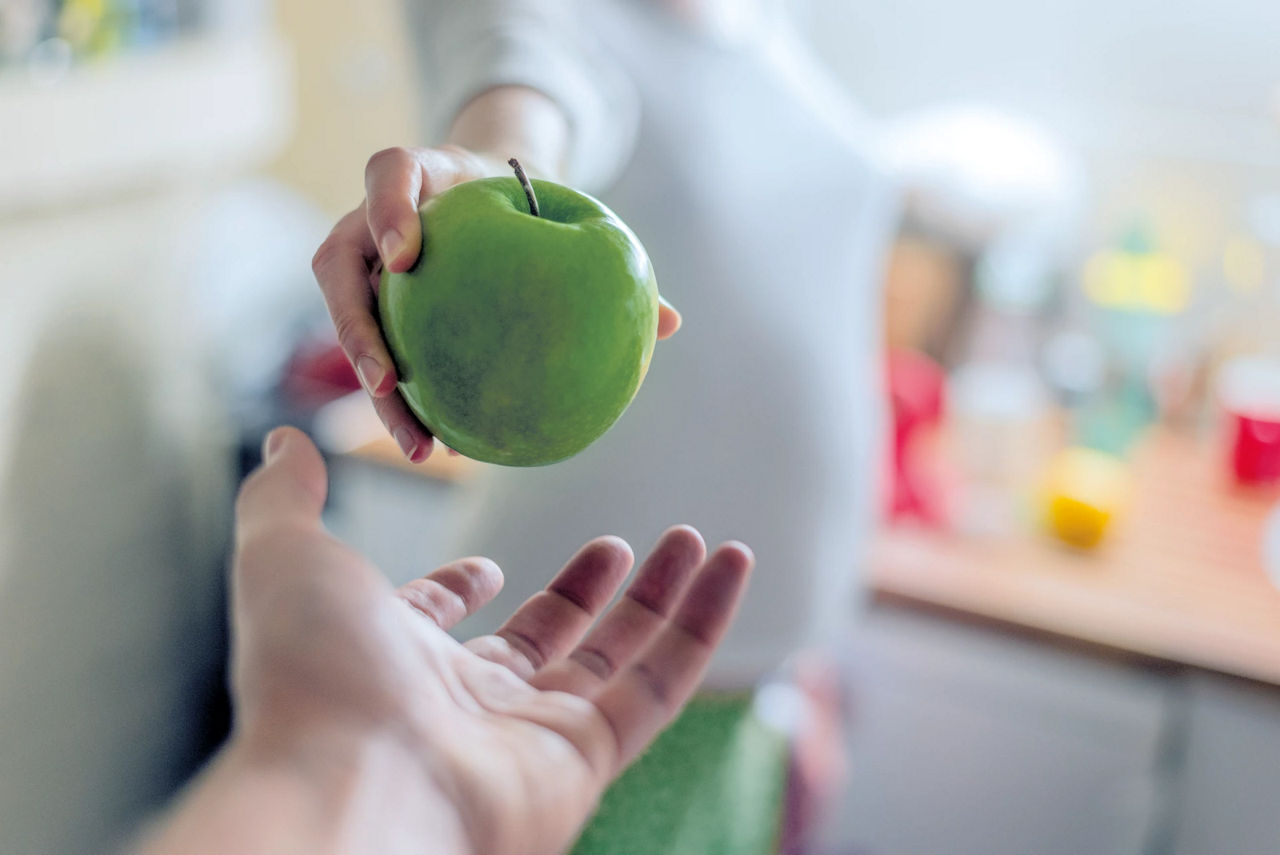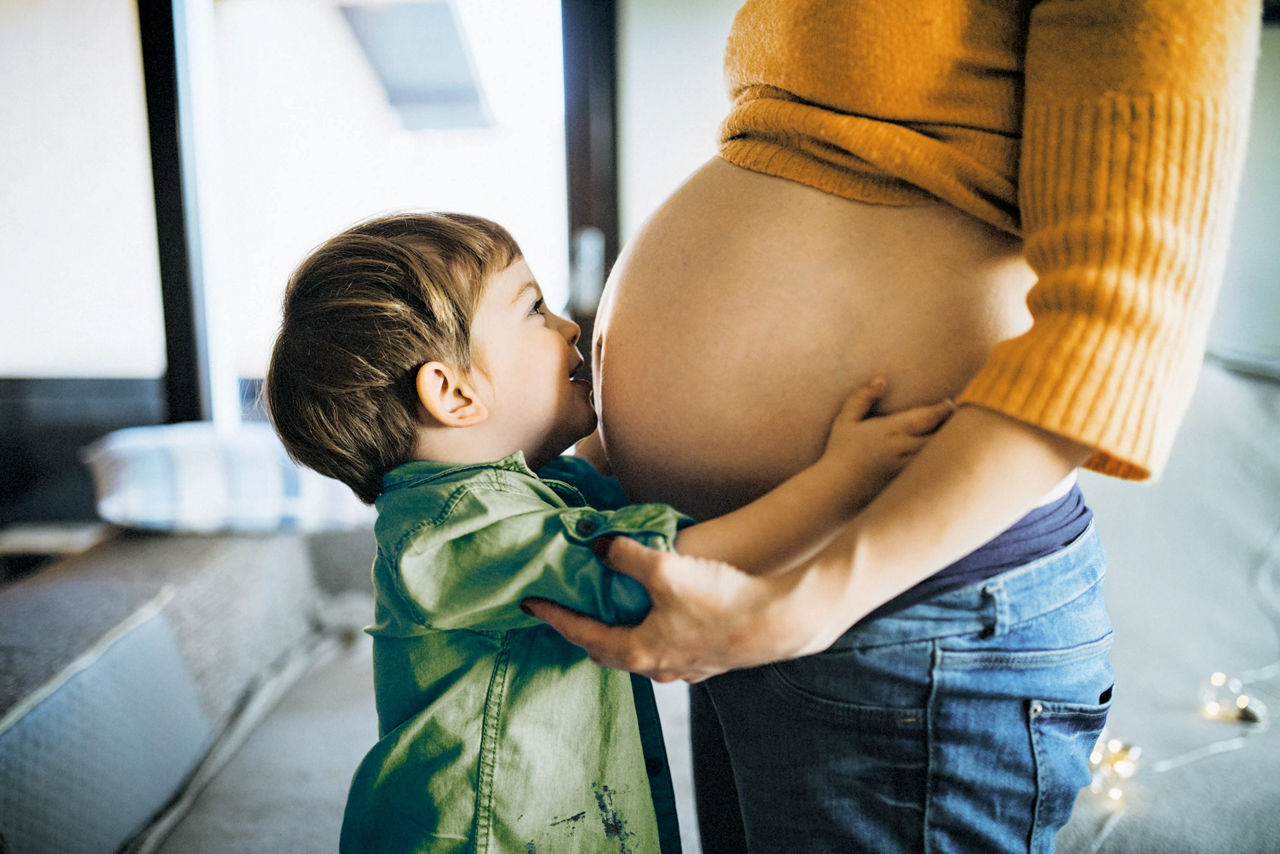Free weaning plan - Register here
What not to eat when pregnant
Foods to avoid or limit when pregnant
Soft mould-ripened cheeses containing a white rind on the outside including brie, camembert, goat’s cheese and blue-veined cheese should be avoided, unless they are cooked to a high temperature. The outside coating of the cheese is a form of mould which can increase the risk of being exposed to harmful bacteria (Listeriosis). This can make you or your baby very unwell. During pregnancy it’s considered safe to eat hard cheeses including cheddar and parmesan and soft cheeses with no outer rind, including mozzarella, feta, halloumi and cottage cheese1.
Avoiding unpasteurised milk and milk products in pregnancy
Unpasteurised milk and milk products including cow’s milk, goat’s milk or sheep’s milk should be avoided during pregnancy as they carry an increased risk of being exposed to a group of harmful bacteria which can cause infections to you and your baby. The process of pasteurisation removes this risk, so check that all your milk and milk products (milk, yoghurt, cream and ice-cream) are pasteurised1.
Eating eggs when pregnant
It’s now considered safe for women to eat runny eggs and raw eggs products such as chocolate mousse if the eggs used carry a British Lion stamp on them. Any form of eggs or foods containing raw eggs such as mayonnaise that do not contain the British Lion stamp on them should be avoided during pregnancy.
Duck, goose and quail eggs should be avoided (unless cooked until the whites and yolks are hard). Eggs carry an increased risk of containing Salmonella bacteria which can cause food poisoning. This is unlikely to cause your baby any harm, however it can make you unwell. British Lion eggs are much less likely to contain Salmonella1. The stamp means that the hens and eggs are British, and that all hens are vaccinated against salmonella and are kept to higher welfare standards than the law demands.
Avoiding offal and pâté in pregnancy
Offal (organ meats including liver) and liver products (such as pâté) contain high levels of vitamin A which can be harmful to the fetus if large amounts are consumed. Plus, all forms of pâté, including vegetable pâté increases the risk of being exposed to harmful bacteria (Listeriosis) and should therefore be completely avoided throughout pregnancy1.
Raw and under-cooked meat to avoid in pregnancy.
Cold cuts of poultry, minced meat, salami and Parma ham (prosciutto) should be avoided during pregnancy. Meat and poultry should be cooked thoroughly so there’s no trace of pink meat or blood. Raw and under-cooked meat has the potential to carry harmful bacteria (Salmonella and Toxoplasmosis) which can increase risk of miscarriage1.
Fish and shellfish to avoid/limit in pregnancy
Swordfish, marlin and shark should be completely avoided throughout pregnancy as they contain high levels of pollutants which can affect the development of your baby’s nervous system1. Oily fish (i.e. salmon, trout, mackerel or herring) should be limited to no more than two portions a week as they too can contain pollutants1.
Tuna should be limited to no more than two tuna steaks (about 140g or 5oz cooked) or four medium-size cans of tuna per week as it contains more mercury than any other fish. Exposure to high levels of mercury can be harmful to your baby. All forms of raw fish and shellfish that have not been previously frozen or smoked should be avoided as they can cause food poisoning1.
Cooked shellfish, smoked fish (smoked salmon and trout), raw or lightly cooked fish in sushi (as long as the fish has been frozen first) and cold pre-cooked prawns can be eaten safely during pregnancy1.
Fruits, vegetables and salads to avoid in pregnancy
Any unwashed fruit, vegetables or salad should be avoided throughout pregnancy as traces of soil may contain harmful bacteria which can make you unwell and can cause miscarriage. All fruits, vegetables and salad foods should be washed thoroughly before eating1,2.
Drinks to avoid or limit when pregnant
Alcohol in pregnancy
Alcohol can cause harm to your baby. Drinking alcohol during pregnancy may increase the risk of miscarriage, premature birth and your baby having a low birthweight1. The safest approach is to avoid all alcohol throughout pregnancy. This is especially important during the first trimester (1-3 months) as this is when your baby develops the most.
Caffeine in pregnancy
Consuming high levels of caffeine in pregnancy has been linked with a number of health consequences such as babies having a low birthweight and increased risk of miscarriage3,4. However, this doesn’t mean that you have to give up your morning coffee fix or afternoon cup of tea all together.
It’s recommended that pregnant women consume no more than 200mg caffeine per day1. Here is a list of commonly consumed foods and drinks and their caffeine content.
- 1 mug of filter coffee = 140mg
- 1 mug of instant coffee = 100mg
- 1 espresso shot = 65mg
- 1 mug of tea = 75mg
- 1 mug of green tea = 55mg
- 1 can of cola = 40mg
- 1 can of energy drink = 80mg
- 50g bar of dark chocolate = 50mg
- 50g bar of milk chocolate = 25mg
Some women choose to limit their intake of caffeine whereas others may prefer to switch to decaf varieties during pregnancy. As with anything, the choice is yours.
It’s important to remember that there is not much evidence on the safety of herbal teas during pregnancy. The NHS recommends that pregnant women consume no more than four cups per day1.
Food safety and preparation during pregnancy
To keep you and your baby well, follow these food safety steps to reduce the risk of coming into contact with foodborne bacteria2.
- Separate raw and cooked foods to avoid cross-contamination of harmful bacteria.
- Wash your hands and work surfaces thoroughly before beginning to prepare food.
- Wash fruit, vegetables and salad until there are no traces of soil.
- Keep chilled foods cold – make sure your fridge is set to 5⁰C or below.
- Always use foods before their use-by date.
- Follow storage instructions on food labels.
- Ready-to-eat food must be eaten within four hours of being taken out of the fridge.
- Cook foods until they are piping hot. Avoid using a microwave as it does not always heat food evenly.
- Follow manufacturer’s instructions in the preparation of all foods
What if I've already eaten something risky?
Try not to worry – if you weren't ill at the time, it's unlikely to have affected you or your baby’s health. Talk to your GP or midwife if you're worried about something you've eaten.
- National Health Service. Foods to avoid in pregnancy [Online]. Last reviewed 2020. Available at: https://www.nhs.uk/conditions/pregnancy-and-baby/foods-to-avoid-pregnant/ [Accessed: December 2020].
- Food Standards Agency. Listeria [Online]. Last updated 2018. Available at: https://www.food.gov.uk/safety-hygiene/listeria [Accessed: December 2020].
- Konje JC, Cade JE. Maternal caffeine intake during pregnancy and risk of fetal growth restriction: a large prospective observational study. BMJ 2008;337(7682):1334-8.
- National Health Service. Should I limit caffeine during pregnancy? [Online]. Last reviewed 2018. Available at: https://www.nhs.uk/common-health-questions/pregnancy/should-i-limit-caffeine-during-pregnancy/ [Accessed: December 2020].
Last reviewed: 25th February 2022

Join our baby club
Ready to stop worrying about what other people think and do what feels right to you? We’ll give you the support you need to follow your instincts and enjoy parenthood to the max:
Helpful emails
Non-judgemental support
Free weaning plan
Tips from real parents
More from pregnancy
Pregnancy topics
Need free advice with a smile? Get in touch with our dedicated Care team.
Ask us a question (8am - 8pm Monday to Friday, 10am - 4pm Weekends)
Messenger
Contact us on Facebook ( 10am–10pm Mon–Sat, 10am–5:30pm Sun)
Call us
Call us on 0800 977 8880 (8am - 8pm Monday to Friday)
FAQs
Get answers to your most frequently asked questions





